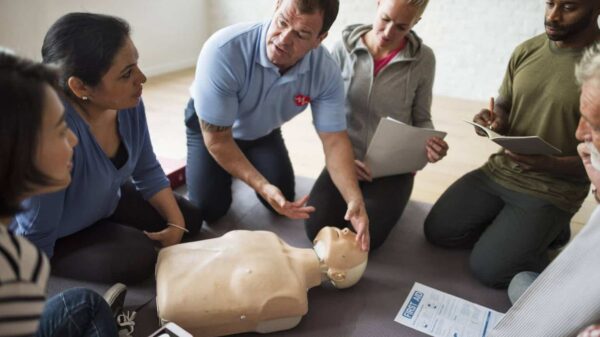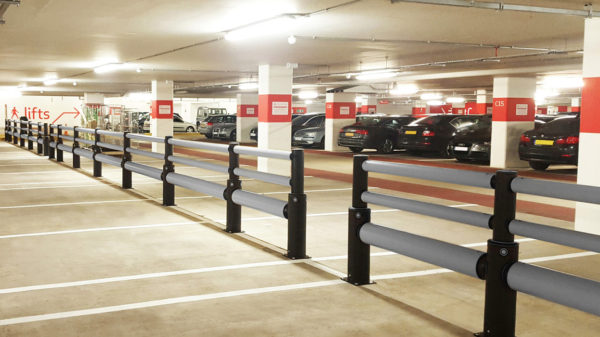When your parents reach their senior years, they are likely to require some extra support to maintain a safe and comfortable lifestyle. You may be worried about the health and safety of an elderly parent, especially if they live alone. Luckily, there are dozens of ways to support an elderly parent without taking away their independence or freedom. Here are five steps you can take to support elderly parents:
Step 1: Have an open conversation about their needs
As your parents get older, you should have an open conversation about their needs. Encourage your parents to discuss how they are feeling about the changes brought on by aging. Ask your parents to make you aware if they are struggling with certain activities and require any support. Your parents will likely have care needs as they get older, especially if they develop health conditions such as physical disabilities or dementia. Following a conversation about their needs, you should be able to make the necessary changes to improve your elderly parents’ quality of life.
For instance, a professional cleaner could be hired so that your parents don’t need to worry about cleaning and other household chores. Keep in mind that the needs of an elderly person can change quickly, so it’s a good idea to have this discussion regularly. If it is obvious that an elderly parent has care needs, then you can arrange for a professional to carry out a needs assessment to determine the level of care required.
Step 2: Offer support when they need it
Everyday activities can become more strenuous when people get older, particularly if they have medical conditions affecting their mobility and function. Some assistance with daily tasks can have a significant impact on an elderly person’s quality of life and help to reduce stress and injuries.
If you live nearby, then try to support your elderly parents as much as possible. You could offer to do their weekly grocery shopping or pop round at the weekend to do their laundry, for instance. Assisting with their chores can be an excellent way to support an elderly parent while allowing them to maintain their independence as much as possible.
Keep in mind that your parents may be resistant to your help in the beginning, but it’s important to consistently offer support when they need it. If you are unable to help your elderly parents with tasks because you live far away, then consider whether a professional in-home carer could be beneficial. Discuss this option with your parents and see if it they would be open to trying it.
Step 3: Create a safe living environment
An increasing number of seniors are choosing to live at home, rather than move into residential care homes. Living at home can offer benefits, but it can also put seniors at risk of accidents and injuries. According to a recent report by the CDC, seniors have roughly 38 million falls each year, resulting in almost 8 million fall injuries.
The majority of senior falls occur in the home and can result in serious injuries and even death. Other common causes of in-home injuries among seniors include slips, burns, and choking. If your elderly parent chooses to remain living at home, then you should consider ways to make their environment safer. Here are some of the top senior-friendly home modifications:
- Widen doorways to accommodate a wheelchair or other mobility devices.
- Install a chair lift to make it easier for your elderly parent to get up and down the stairs.
- Replace round doorknobs with levels style handles that are easier to open.
- Install a home alarm that your elderly parent can sound for assistance in an emergency.
- Add grab bars in the bathroom and bedroom to offer additional support.
- Place anti-slip flooring in high-risk areas such as the bathroom.
Step 4: Keep in regular contact
One of the best ways to support your elderly parents is simply by staying in regular contact. Loneliness and isolation are a serious issue among the elderly and can put seniors at risk of chronic health conditions including depression.
Make an effort to check in on your elderly parents regularly. This could be a quick phone call once a week or popping around to their house for a cup of tea at the weekend. You should also encourage your elderly parents to use modern technology like social media to connect with family and friends online. There is a great selection of advice on how to teach seniors to use social media. Arranging regular family gatherings can be another great way to nurture family bonds and make your elderly parents feel more involved.
Step 5: Suggest assisted living
If you notice that an elderly parent is struggling at home and you are worried about their welfare, then you should discuss the benefits of assisted living. Moving into a senior living community will ensure that your elderly parents get the support they need to maintain a comfortable and safe lifestyle.
Senior living communities also encourage elderly people to lead an active, social, and fulfilling lifestyle. If you feel that an elderly parent would benefit from moving into a senior living community, then have a conversation with them about it. Remember to broach the topic sensitively and avoid putting pressure on an elderly parent. Instead, focus on the positives and discuss how assisted living could enrich their life. If they seem interested, then you can book an orientation day so that your elderly parent can experience the living environment first-hand.
Conclusion
Offering to help an elderly parent can be a great way to show your support and build family bonds. That said, you should be prepared for the fact that an elderly parent may be resistant to your help in the beginning. Deciding how best to support them can be a challenge, but there are plenty of ways to do that. Try some of the above suggestions to help your parents stay safe, healthy, and happy as they age.






























































